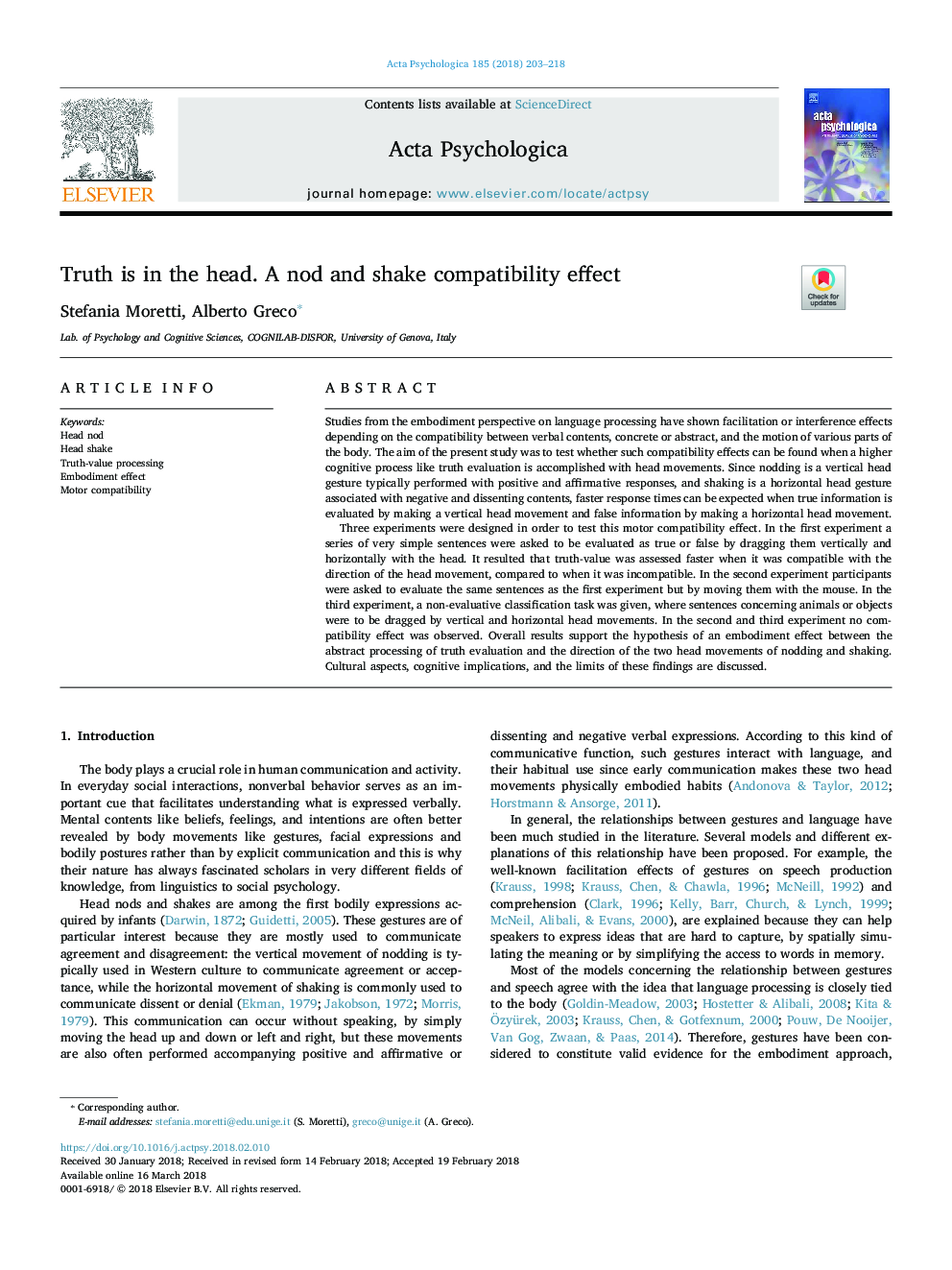| Article ID | Journal | Published Year | Pages | File Type |
|---|---|---|---|---|
| 7276791 | Acta Psychologica | 2018 | 16 Pages |
Abstract
Three experiments were designed in order to test this motor compatibility effect. In the first experiment a series of very simple sentences were asked to be evaluated as true or false by dragging them vertically and horizontally with the head. It resulted that truth-value was assessed faster when it was compatible with the direction of the head movement, compared to when it was incompatible. In the second experiment participants were asked to evaluate the same sentences as the first experiment but by moving them with the mouse. In the third experiment, a non-evaluative classification task was given, where sentences concerning animals or objects were to be dragged by vertical and horizontal head movements. In the second and third experiment no compatibility effect was observed. Overall results support the hypothesis of an embodiment effect between the abstract processing of truth evaluation and the direction of the two head movements of nodding and shaking. Cultural aspects, cognitive implications, and the limits of these findings are discussed.
Keywords
Related Topics
Life Sciences
Neuroscience
Cognitive Neuroscience
Authors
Stefania Moretti, Alberto Greco,
